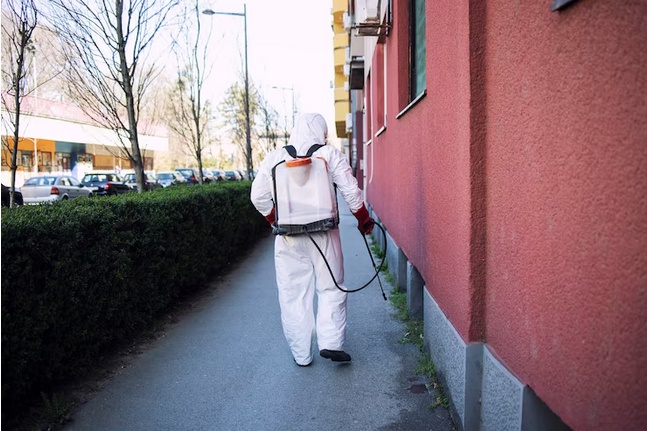Introduction:
Wasps are notorious for their painful stings and aggressive behavior, making them a nuisance and potential danger in Birmingham. When faced with a wasp infestation, it is crucial to address the issue promptly and effectively. In this guide, we will explore various methods and strategies for effective wasp removal in Birmingham. From prevention to elimination, we will provide valuable insights to help you deal with these buzzing pests.
Understanding Wasps:
Wasps are flying insects belonging to the Hymenoptera order, which includes bees and ants. They are characterized by their slender bodies, distinctive yellow and black markings, and a narrow waist. Unlike bees that feed on pollen and nectar, wasps are predatory insects, often scavenging for food or preying on other insects. They construct nests made of a paper-like material, typically found in trees, eaves, attics, or underground.
Common Wasp Species in Birmingham:
Birmingham is home to several wasp species, each with its own characteristics and nesting habits. Understanding the common wasp species in the region can help in identifying and addressing the infestation effectively. Some of the common wasps in Birmingham include:
Yellow Jackets: Yellow jackets are aggressive wasps with yellow and black stripes. They build nests in the ground, wall cavities, and attics.
Paper Wasps: Paper wasps have slender bodies and long legs, and their nests are typically umbrella-shaped and attached to eaves, branches, or other structures.
Hornets: Hornets are larger wasps, usually with brown or black markings. They build aerial nests, often high in trees or shrubs.
Solitary Wasps: Solitary wasps, as the name suggests, do not form colonies. They construct small individual nests and are less likely to cause major infestations.
Preventing Wasp Infestations:
Prevention is key when it comes to dealing with wasps. By taking some proactive measures, you can reduce the risk of wasp infestations on your property. Here are some effective preventive strategies:
Seal Entry Points: Inspect your property for any openings, cracks, or gaps that may serve as entry points for wasps. Seal them to prevent wasps from establishing nests.
Proper Waste Management: Ensure that garbage cans and bins are tightly sealed, minimizing the availability of food sources that can attract wasps.
Cover Food and Sweet Beverages: When dining outdoors, cover food and drinks, as wasps are attracted to sugary substances.
Keep Outdoor Areas Clean: Regularly clean outdoor spaces, including patios, decks, and picnic areas, to remove any food residue or spills that may attract wasps.
Trim Vegetation: Trim shrubs, trees, and hedges near your property to minimize potential nesting sites for wasps.
Wasp Nest Identification:
Identifying a wasp nest is crucial for effective removal. However, it's important to exercise caution and avoid disturbing the nest, as wasps can become aggressive when they feel threatened. Some signs that indicate the presence of a wasp nest include:
Increased Wasp Activity: Notice an increased number of wasps around your property, particularly in one specific area.
Paper-like Structures: Spotting paper-like nests attached to walls, eaves, tree branches, or underground.
Insect Traffic: Observing wasps entering and exiting a particular area consistently.
DIY Wasp Removal Methods:
For small or accessible nests, you may consider attempting DIY removal methods. However, always prioritize your safety and be aware of the potential risks involved. Here are a few DIY wasp removal methods:
Wasp Traps: Set up wasp traps using sweet baits to attract and capture individual wasps.
Insecticidal Sprays: Use commercially available wasp sprays designed for nest elimination. Apply the spray directly onto the nest during nighttime when wasps are less active.
Soap and Water Solution: Mix a solution of soapy water and spray it onto the nest. This can suffocate the wasps and destroy the nest.
It is important to note that DIY methods may not be effective for large or hard-to-reach nests. In such cases, it is recommended to seek professional help.
Professional Wasp Removal Services:
When dealing with large or potentially dangerous wasp infestations, it is advisable to hire professional wasp removal services in Birmingham. Professional exterminators have the necessary expertise, equipment, and safety protocols to handle wasp infestations effectively. Here are some advantages of professional wasp removal services:
Expert Assessment: Professional exterminators can accurately assess the infestation, identify the wasp species, and determine the best course of action.
Safety Measures: Exterminators are trained in handling wasps safely and have the appropriate protective gear to minimize risks.
Effective Removal: Professionals utilize specialized techniques and insecticides to eliminate wasp nests completely and prevent future infestations.
Nest Removal: Professional services ensure thorough nest removal, minimizing the chances of reinfestation.
Conclusion:
Dealing with a wasp infestation in Birmingham requires prompt action and a strategic approach. By implementing preventive measures, identifying nests accurately, and considering appropriate removal methods, you can effectively address wasp problems. DIY methods may work for small nests, but professional wasp removal services are recommended for large or dangerous infestations. Remember to prioritize safety and seek professional help when needed to ensure a successful and safe wasp removal process.


No comments yet